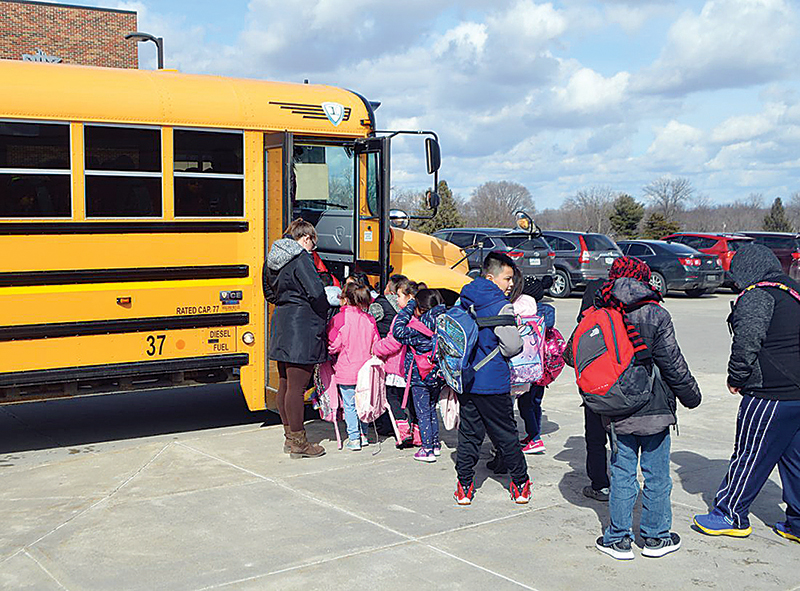MCSD to receive new buses

CONTRIBUTED PHOTO: - The Marshalltown Community School District received a U.S. Environmental Protection Agency grant for new buses which will benefit students, as there will be a decrease in bus emissions.
The Marshalltown Community School District received $40,000 in funding from the U.S. Environmental Protection Agency (EPA) to replace two buses as a way to decrease emissions from older diesel engines.
The Marshalltown school district was one of 10 Iowa districts to receive a grant. The $300,000 in funds are part of the EPA’s Diesel Emissions Reduction Act, or DERA, which is giving $11.5 million to 157 different school districts in 43 states.
Rex Kozak, MCSD director of transportation, said they expect to receive the buses in late August, unless the pandemic pushes it back. Once they arrive, the state inspector will look them over and they will then be put to use.
Marshalltown schools applied to receive this funding.
“We received notification through the Iowa Pupil Transportation Association of the grant opportunity through the Diesel Emissions Reduction Act School Bus Rebate Program. The DERA grant is a lottery system, and to be considered, an application needs to be filled out and information on the buses you want to replace,” Kozak said.
The awarding of the DERA grants coincided with the 50th anniversary of Earth Day on April 23. With the elimination of older buses, fewer emissions will create cleaner air. This is beneficial for students and the planet alike.
Kozak was pleased to hear they would be awarded the grant.
“We submitted two buses that met the requirements to be taken out of service and replaced with buses that have better emission controls in them,” he said. “The Marshalltown School District was selected and awarded the DERA Grant for $20,000.00 per bus to replace.”
The buses had to be engine model years 2006 or older, and rebates were between $15,000 and $20,000 depending on bus size.
As always, student safety will be a top priority.
“The three new buses will all be equipped with seat belts; it will be expected that whoever rides a bus with seat belts, the seat belts will be put on,” Kozak said. “We went for the traditional 39-inch seat to a 36-inch seat, putting only two students per seat and giving them more room in the seat along with more room in the aisle.”
The replacement of the buses ensures the health of students and limits the environmental effect.
“We believe protecting the health of our children and youth is one of our primary missions,” EPA Region 7 Administrator Jim Gulliford said. “Removing old diesel-engines from our roads and replacing them with reduced-emission engines will provide further protection.”
——
Contact Anna Shearer at ashearer@timesrepublican.com.





